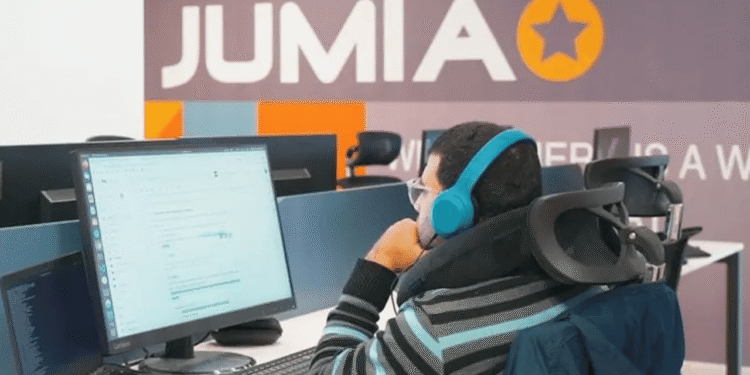Jumia Egypt has partnered with Cairo-based AI startup Intella to introduce the first Arabic voice shopping system designed specifically for Egyptian dialect users. The collaboration brings Ziila, an intelligent voice assistant, to Egypt’s e-commerce market.
The voice commerce technology allows Egyptian shoppers to complete entire purchases through spoken commands. Users send voice messages instead of typing or browsing product categories manually. This approach targets Egypt’s growing preference for voice interaction over traditional navigation methods.
Arabic Voice Recognition Achieves 95.7% Accuracy Rate
Ziila processes 25 different Arabic dialects with 95.7% accuracy. The system understands natural conversation patterns without requiring users to modify their speech or vocabulary. Egyptian customers can speak naturally while shopping, eliminating the need to adapt their communication style for the technology.
Intella built its voice recognition capabilities using extensive conversation datasets from across the Arabic-speaking world. The company, founded in 2021 and based in Cairo and Riyadh, focuses exclusively on Arabic speech-to-text technology development.
The startup secured $3.4 million in pre-Series A funding led by HALA Ventures and Saudi Aramco’s Wa’ed Ventures in 2024. Additional investors included Sanabil 500 and INSEAD Angels. Intella’s total funding reached $4.4 million across two investment rounds.
Egypt’s Mobile Commerce Market Shows Strong Growth
The partnership launches amid Egypt’s expanding e-commerce sector. Mobile devices account for 72.73% of online sales in Egypt in 2024, highlighting the mobile-first shopping approach among Egyptian consumers.
Egypt’s internet penetration reached 81.9% in 2025, up from 72.2% in 2024. The country now has 96.3 million internet users, representing a 14.6% increase from the previous year.
The Egyptian e-commerce market was valued at $9.1 billion in 2024 and is projected to reach $19.6 billion by 2032, growing at a 10.2% compound annual growth rate.
Voice Technology Addresses Regional Shopping Preferences
Arabic voice recognition faces unique technical challenges due to dialect diversity and linguistic complexity. Traditional speech recognition systems struggle with non-diacritized text, multiple regional variations, and code-switching between Arabic and other languages.
Jumia’s voice commerce system specifically targets users who prefer speaking over typing. This approach could expand e-commerce access for Egyptian population segments who find traditional interfaces difficult to navigate.
The technology eliminates common shopping barriers like slow typing on mobile keyboards or difficulty finding specific products through search functions. Users can describe what they want in natural Egyptian Arabic, and the system processes their requests automatically.
Jumia’s Market Position and Performance
Jumia operates across 11 African countries and serves over 8 million customers. The company generated more than $1 billion in gross merchandise value in 2022, providing significant scale for voice technology adoption testing.
However, Jumia’s recent financial performance shows mixed results. Fourth quarter 2024 revenue fell 23% year-over-year to $45.7 million, though the decline was only 2% in constant currency terms. Full-year 2024 revenue dropped 10% to $167.5 million.
The company’s gross merchandise value reached $720.6 million in 2024, down 4% year-over-year but up 28% in constant currency. These figures suggest currency fluctuations significantly impact Jumia’s reported performance.
Voice Commerce Expansion Across MENA Region
The Jumia-Intella partnership represents the first commercially deployed Arabic voice commerce system designed for regional dialects. Voice commerce adoption in the Middle East and North Africa has been limited due to language complexity and technical challenges.
Industry analysts identify voice commerce as a key growth area for MENA e-commerce in 2025. Natural language processing demand is particularly high in markets with diverse Arabic dialects, making Egypt an important testing ground for voice technology expansion.
The success of this initiative could influence voice commerce development across other Arabic-speaking markets. Similar technology could expand to Saudi Arabia, UAE, and other Gulf countries where Intella already operates.
Technical Implementation and User Experience
The voice ordering system integrates directly with Jumia Egypt’s existing e-commerce platform. Customers access the feature through the standard Jumia mobile app or website interface. Voice messages are processed through Intella’s cloud-based recognition system.
Users can complete various shopping tasks through voice commands, including product searches, price comparisons, and purchase transactions. The system handles payment processing and order confirmations through voice interaction.
Initial implementation focuses on popular product categories where voice descriptions work most effectively. Electronics, fashion items, and household goods represent primary target categories for voice shopping adoption.
The technology could particularly benefit older users or those with limited typing skills. Voice commerce also offers advantages for multitasking customers who want to shop while engaged in other activities.













